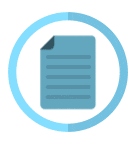The effect of booktrack on students reading comprehension ability
Keywords:
Booktrack, technology, reading comprehensionAbstract
The purpose of this study was to determine the effect of Booktrack on listening to students in reading comprehension skills. Booktrack is a free web application that synchronizes digital books with audio, producing a deep reading experience. The sample of this study was class VII of Junior high school AL KAHFI SEPULU as an experimental class and as a control class that consists of 20 students. The method in this study is a quantitative method. In addition, the design used was pre-experimental research, and the instrument was tests. This research was taken using non-random sampling. In addition, this research was carried out through the following procedures: giving pre-test, applying treatment and giving post-test. Data were analyzed and processed using ANCOVA statistical data calculations by the SPSS 23 program. Significant shown by the average post-test of students in the experimental class was 50.00 and the post-test average in the control class was 48.00. The results of the statistical hypothesis test was 0.021 from the p-value. This was lower than the significant level of 0.05. If the p-value <of the significant level is 0.05. This means H1 is accepted and H0 is rejected. In conclusion, this Booktrack media is effective as a teaching medium to improve reading comprehension in grade VII students at Junior high school al Kahfi Sepulu.
Downloads
Published
How to Cite
Issue
Section
License
1. Copyright of this journal is possession of Editorial Board and Journal Manager, by the knowledge of author, whilst the moral right of the publication belongs to the author.
2. Legal formal aspect of journal publication accessibility refers to Creative Commons Atribution-ShareAlike (CC BY-SA), implies that this license lets others remix, adapt, and build upon your work even for commercial purposes, as long as they credit you and license their new creations under the identical terms. This license is often compared to “copyleft” free and open source software licenses.
3. Every publications (printed/electronic) are open access for educational purposes, research, and library. Other that the aims mentioned above, editorial board is not responsible for copyright violation















